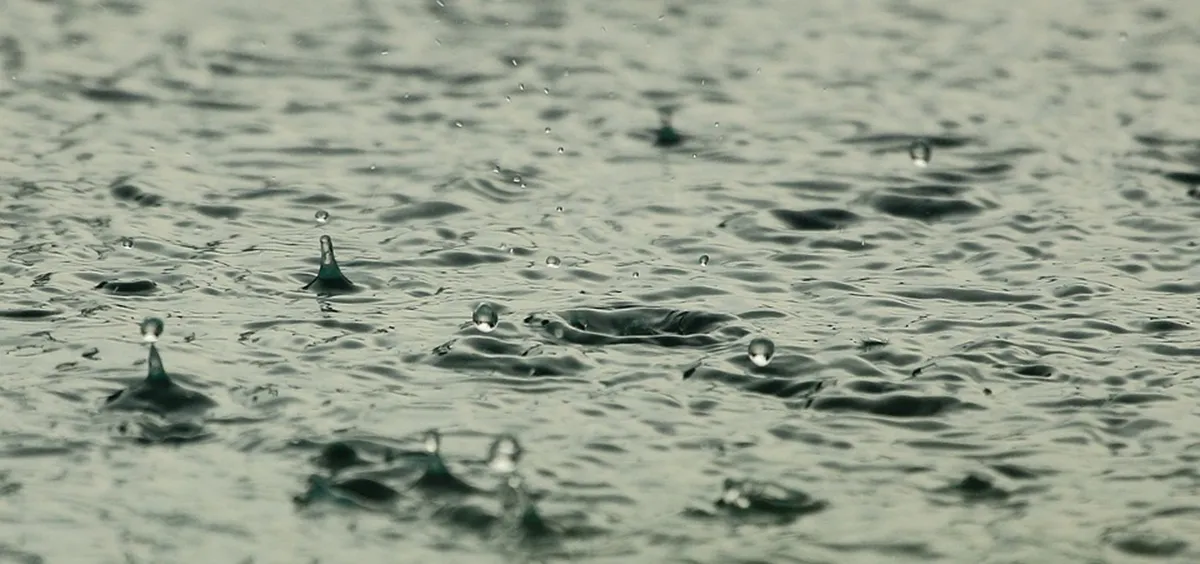Stormy sayings in celebration of spring
Choice Chengyu is a regular column, examining interesting, unique or newsworthy examples of chengyu—four-character idioms or proverbs, descended from historical and mythical events.
When legendary historian Cang Jie created Chinese characters thousands of years ago, grain supposedly fell from the sky like raindrops in celebration. Nowadays, April 20 marks the start of rainy season in China when, according to the ancient agricultural calendar, the sixth solar term brings Grain Rain (or 谷雨) to nourish the crops.
Many chengyu use “rain” metaphorically—in ancient times, the terms “wind” and “rain” were often used together as euphemisms for political or other sticky situations. What better way to celebrate this season of storms and watchful words than with some rain-related idioms?
风调雨顺 Propitious winds and favorable rains
This proverb refers not only to good crop weather, but a peaceful era.
风雨如磐 Succession of winds and rains
As above, this chengyu has a meterological meaning of “continuous rain,” but can also describe a society full of serious serious problems.
风雨不透 Airtight and watertight
This chengyu describes a state of being completely surrounded—or refers to a complete block of information.
风雨飘摇 Swaying in the midst of a raging storm
This term means “shaky, precarious, and tottering.” One could say:
那个政权正处于风雨飘摇之中。
Nàge zhèngquán zhèng chǔyú fēngyǔpiāoyáo zhīzhōng.
The regime is swaying in the midst of a raging storm.
栉风沐雨 Windswept and rain-soaked
To brave the elements for travel or work, as in:
这支侦探队栉风沐雨地奋战在高山深谷之中。
Zhè zhī zhēntànduì zhìfēng mùyǔ de fènzhàn zài gāoshān shēngǔ zhīzhōng.
Year in, year out, the team of prospectors brave wind and rain to work in the high mountains.
未雨绸缪 Repair the house before it rains
As the ancients believed, “Preparedness ensures success, and unpreparedness spells failure” (凡事预则立,不预则废). There is a story behind this idiom: After the death of the Zhou dynasty King Wu, the throne passed to his young son King Cheng, with the late king’s younger brother Ji Dan, the Duke of Zhou, acting as regent. However, malicious rumors caused a rift between the young king and his uncle, and the latter left the capital. Learning that some political enemies were plotting treason, the duke wrote to the king, warning, “Before it rains, I will repair the door and the window.” It took some doing to get the king to trust him, but eventually, King Cheng invited the Duke of Zhou back, and they suppressed the revolt together. The duke’s foresight was later summarized into this chengyu.
翻手为云,覆手为雨 Make clouds with one turn of the hand, and rain with another
“Rain” doesn’t only follow “wind” in idioms—it’s also often found with the character “云”, or “cloud.” This idiom, and its abbreviated form 翻云覆雨, come from Tang dynasty poet Du Fu, and refer to untrustworthy people, particularly those in positions of power:
他为人翻云覆雨,和他打交道要小心。
Tā wèirén fānyún fùyǔ, hé tā dǎjiāodao yào xiǎoxīn.
He is a capricious and deceitful person. You need to be careful in your dealings with him.
巫山云雨 Clouds and rain over Mount Wushan
During the Warring States period, Song Yu related a salacious tale in his essay “Gaotang Fu”: While visiting a temple called Gaotang built in his hunting park, a king of the Chu Sate dreamed of sleeping with a beautiful woman who called herself the “Lady of Mount Wushan” and told the king she would become “a cloud in the morning, rain in the evening.” Finding the local weather to be just as she described, the king built a temple for the lady known as the “Morning Could Temple.” “Cloud and rain over Mount Wushan” has since become one of the more obscure (of many) Chinese euphemisms for sex.












